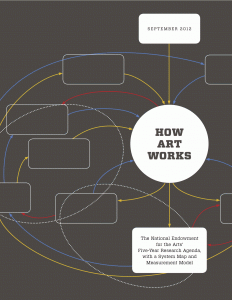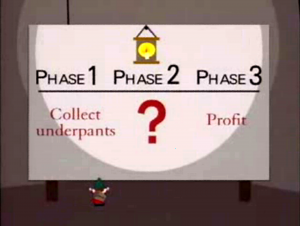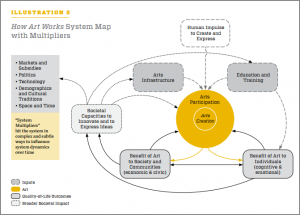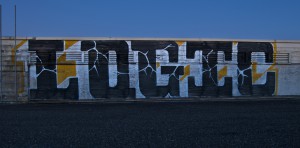This is a short version of my full addition to the Arts Policy Library. With “How Art Works: The National Endowment for the Arts’ Five-Year Research Agenda,” the National Endowment for the Arts is getting proactive. Acknowledging that the NEA’s research efforts have been mostly descriptive in the past, “How Art Works” is intended toRead More
Arts Policy Library: How Art Works
Beyond a research agenda for the NEA itself, How Art Works “proposes a way for the nation’s cultural researchers, arts practitioners, policy-makers, and the general public to view, analyze, and discuss the arts as a dynamic, complex system.”
The Virtues and Pitfalls of Open Contests
An interesting back and forth on “contest philanthropy” took place recently in the pixel-pages of Stanford Social Innovation Review between Mayur Patel, the wunderkind VP of Strategy and Assessment for the Knight Foundation, and Kevin Starr, managing director of the Mulago Foundation. Patel started things off in July with a blog post on six reasonsRead More
Solving the Underpants Gnomes Problem: Towards an Evidence-Based Arts Policy
Arts research is broken. Here’s how to fix it.
Around the horn: Livestrong edition
ART AND THE GOVERNMENT The Los Angeles Times, via music critic Mark Swed, revives the Secretary of Culture talk, this time nominating Peter Sellars and Leon Botstein for the job. It’s an earnest appeal for an idea worthy of consideration, but if it was a political nonstarter four years ago, it’s hard to see how itRead More
Around the horn: Four more years edition
ART AND THE GOVERNMENT As you know, there was an election last week, and Barack Obama won it. Thankfully this means that Barry Hessenius’s worst fears about the NEA likely won’t be realized, but Barry does have some useful advocacy advice that is worth a read regardless of the outcome. Ted Johnson has a helpful pre-electionRead More
Live-blogging the “How Art Works” convening
[7:29] Oops! I ran out of juice (the electrical, not the metaphysical kind) just as things were wrapping up. Anyway, I thought Andrew Taylor did a great job of moderating that last panel and pointing out some of the more interesting features of the model as it’s been developed. At the end of the day,Read More
In Defense of Logic Models
They’re flexible, they’re transparent, and chances are, they’re already in your head.



